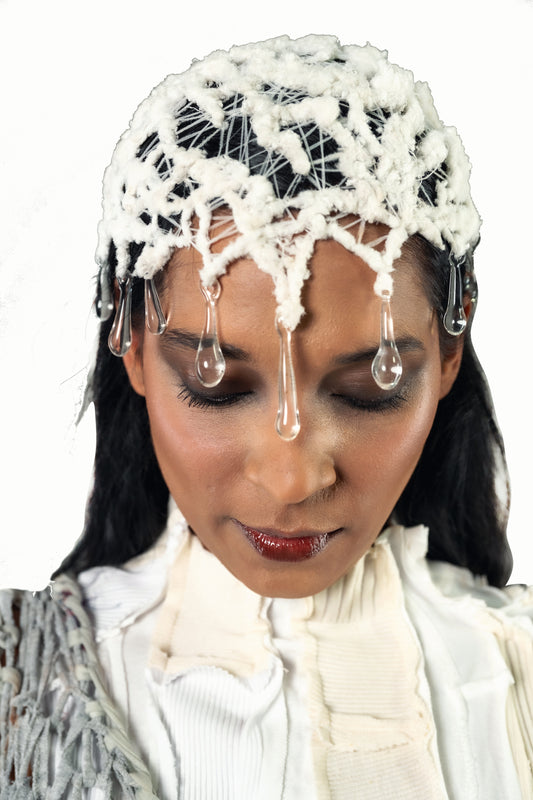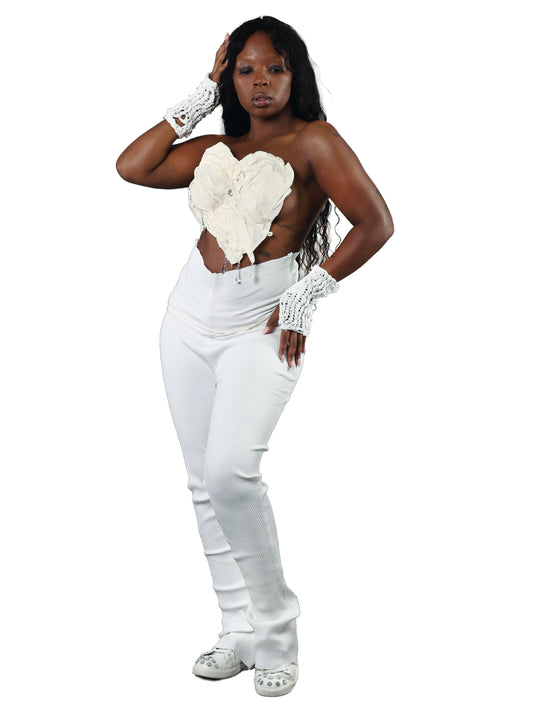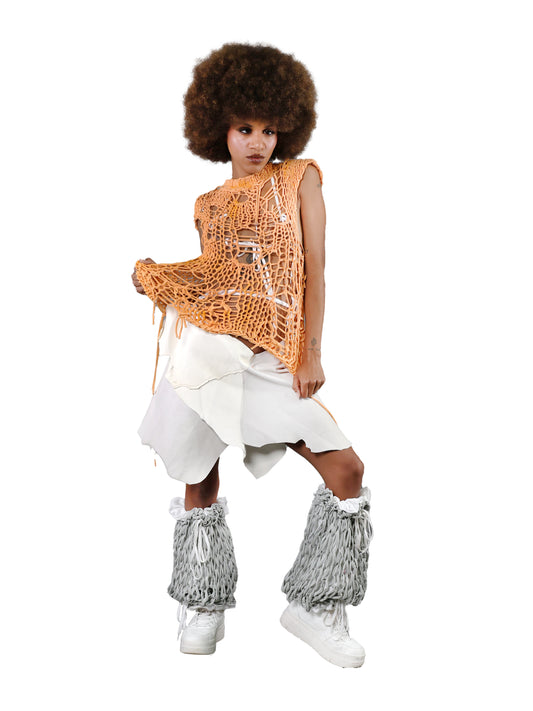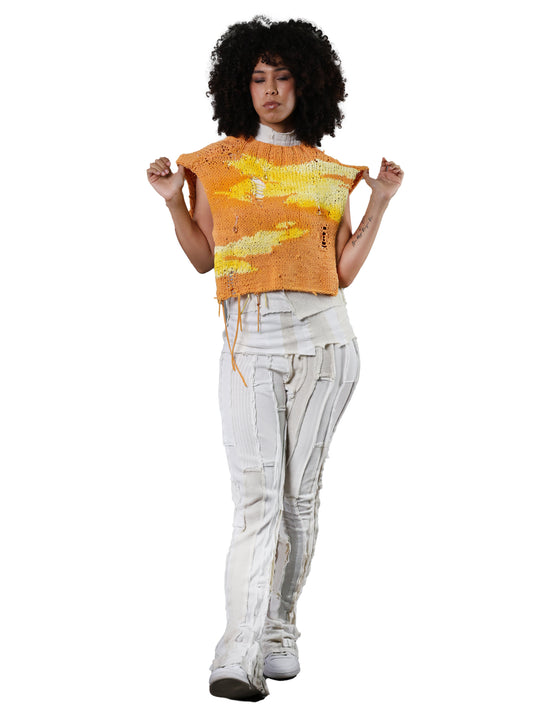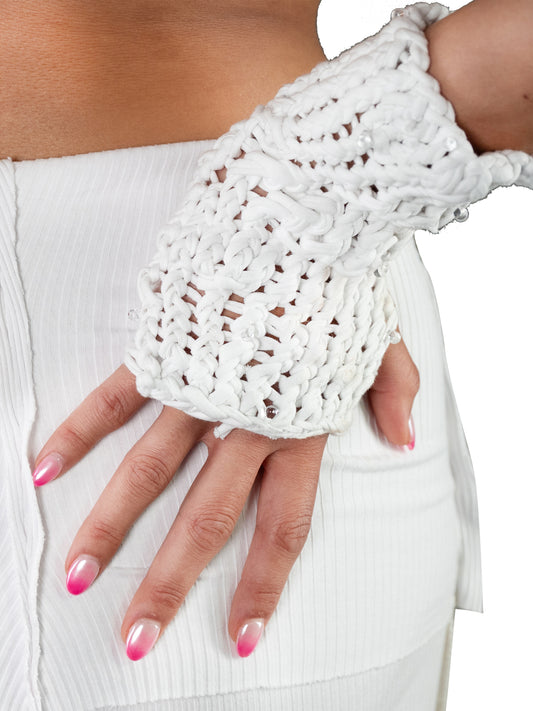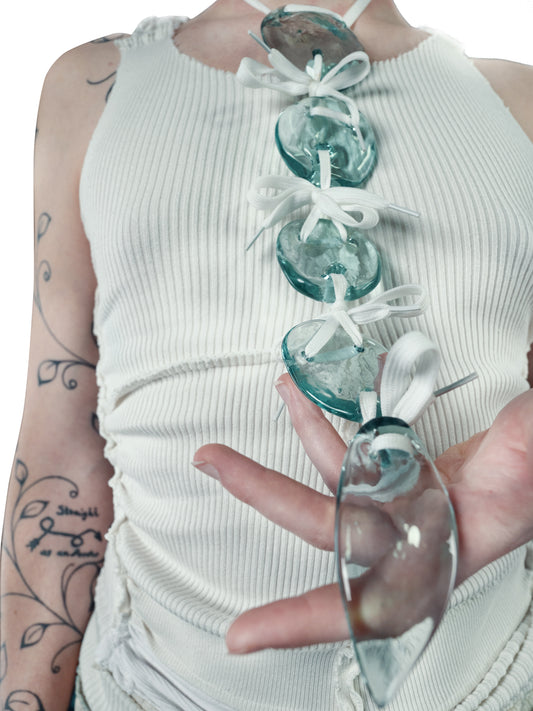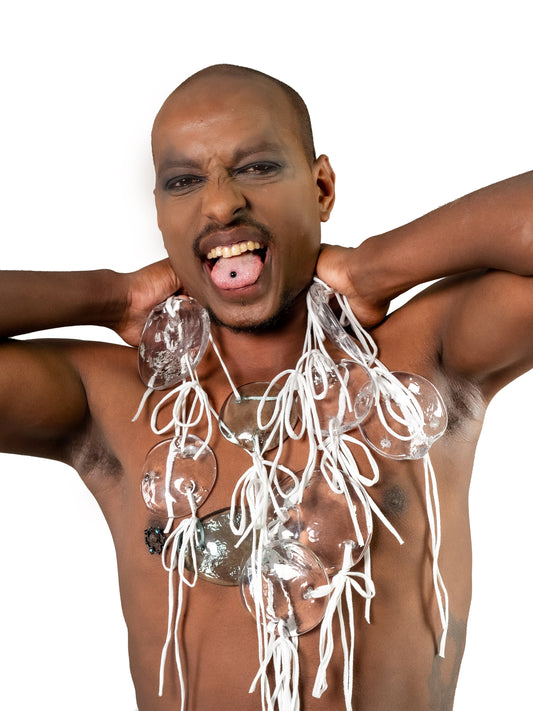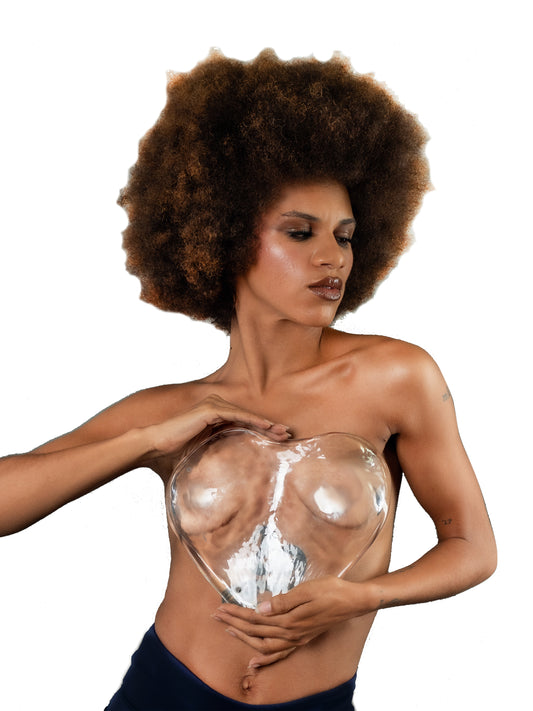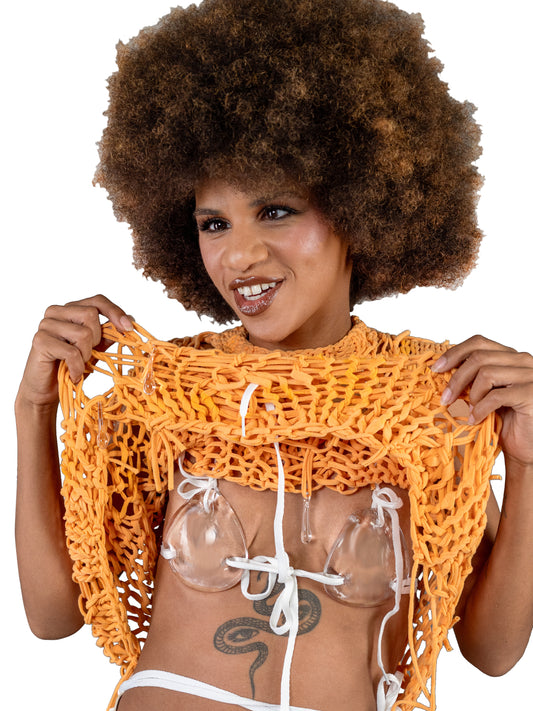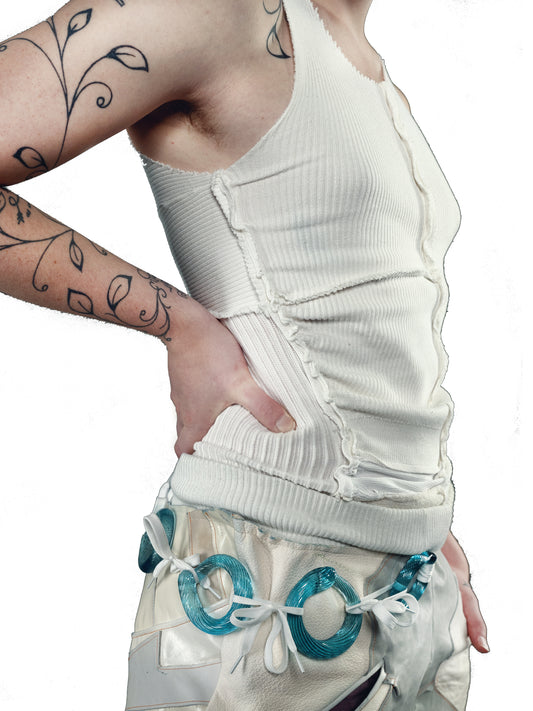-
Glass Headpiece
Regular price €740,00 EURRegular priceUnit price per -
White Heart Top with Glass
Regular price €450,00 EURRegular priceUnit price per -
Knitted Top, Orange
Regular price €120,00 EURRegular priceUnit price per -
Knitted Pull-Over Top, Orange
Regular price €350,00 EURRegular priceUnit price per -
Whiskey Glass Handbag
Regular price €380,00 EURRegular priceUnit price per -
Hand Warmers, white
Regular price €48,00 EURRegular priceUnit price per -
Glass Necklace
Regular price €555,00 EURRegular priceUnit price per -
Glass Heart
Regular price €930,00 EURRegular priceUnit price per -
Glass Belt
Regular price €550,00 EURRegular priceUnit price per
CONCEPT OF OUR COLLECTIONS
Collection X - Vol 1
"Collection X" is a Vision of Sustainable Futurism and Social Criticism shaped in a line of garments and a forward-thinking fashion initiative that transforms textile waste, particularly polyester yarn residue, into high-quality, genderless, and size-adaptable garments. Partnering with Kinkleid within an ongoing investigation project, the project focuses on scalable, sustainable techniques that repurpose waste, contributing to rethinking the future in fashion.
The collection blends streetwear with casual glam, offering a futuristic yet timeless aesthetic using a palette of white, orange tones, purple, and grey. Techniques such as heat-pressing and minimizing waste techniques, drawing on methods from Turtlehorn’s first initial collection "Social Trash". By using both artisanal and industrial methods, it reinvents leftover materials into innovative knitwear.
Beyond sustainability, "Collection X" critiques the elitism and superficiality in the fashion industry, highlighting the contributions of women, who make up 70% of its creators. It aims to combat the industry's corruption and power imbalances, promoting inclusivity, diversity, and empowerment for women. By prioritizing environmental responsibility and social integrity, the collection seeks to realign fashion with ethical values and serve as a symbol of harmony and empowerment.
LESS
SW’22
We live in a society where clothing is associated with a binary gender and we accept it as ‘normal’. We grew up in a system, being associated to one or the opposite gender, living the role as male or female. But aren’t we all a bit feminine and masculine somehow?
We do believe, that gender is a spectrum and that we should approach for more style experimentation in fashion and unpicking old-fashioned gender standards.
In this collection, it is important to offer people the freedom to celebrate their identities through fashion, creating their own style and interpreting the garment on an individualistic level.
My question to the fashion world is: why do we need to create shapeless monotone unisex collections, if skirts, suits and ties can be worn by any gender? And why is fashion still following the gender binary model idea?
Therefore, I want to open up a conversation trough fashion, creating a (gender)LESS collection, with clothing that can be worn by any body-type and gender. Approaching more inclusive fashion, for all types, shouting for self-expression celebrating unique identities.
The flower element symbolizes fragility and beauty. A symbol often associated with femininity; but can’t men also be fragile and beautiful?
The yellow stands for an expressive line of fluidity, in between all other lines of (social) restrictions.
I also want to point out that women wearing typically men’s clothing
often get judged, into the point where society questions their sexuality. LESS sets gender beauty and femininity in another context.
The collection is made out of upcycled men’s wear from over-production materials coming from diverse labels, like rip-undershirts, blue striped shirts and suits and suit-pants; unpicking mens’ wear into a more fluid version.
TRASHROOTS
How to make a sustainable and fair collection, based in my own culture, integrating handcrafts with a modern spirit?
“Trashroots” is a streetwear collection inspired by my roots in Andalusia, Spain; integrating traditional crafts in a contemporary and modern spirit in an urban context.
I wanted to analyze more extensively these environments, getting to the relevance of traditional hand-crafts and cultural heritage, which I was surrounded by since my childhood, with the possibility to integrate them in my work, by keeping them alive in a modern way.
Investigating about the “Jarapa” handcraft weaving technique, the materiality plays an important role where I tried to make a collection as sustainable as possible.
During the process, I worked weaving cotton rests from the textile industry and collaborated with fashion workers of a big ghetto in Seville.
The shapes of the clothes reflect the tiles and street elements of the city, but also have a grip on the actual skate fashion, with strong and flexible textiles, such as cargo pants, wide t-shirts…, and ready to wear all over the year. I tried to make in general unisex and one size pieces which are mostly suitable for all types.
All colors are typical and popping up in Seville: The predominant soft orange, the “Azulejo” tile blue, the powerful bloody red and the energic yellow, that I used as a detail color over the whole collection.
“Trashroots” is a wordplay, composed by “Trash”, referring in a way to the most popular and rough skate magazine, and from inherit “trashy roots” (as the society there is very nationalistic and stuck into their traditions and religion).
FROHSHIRT
FROHSHIRTS are basic t-shirts made out of pre-used towels (“Frotté
t-shirts”) that ended up in the trash. They become our new resource
to create beautiful and colorful unique pieces from sizes from S to XL.
The idea started out of an upycling concept inspired in streetwear
related to sports, bringing activities like surfing, skateboarding,
running, etc., into the urban jungle.
They are made out of 100% cotton and can be worn by any gender. In
addition, they are comfortable on your skin and allows you great
mobility on daily activities without depending on the weather.
FROHSHIRTS can be experienced warm and cozy in the winter and
refreshing in the summer.

